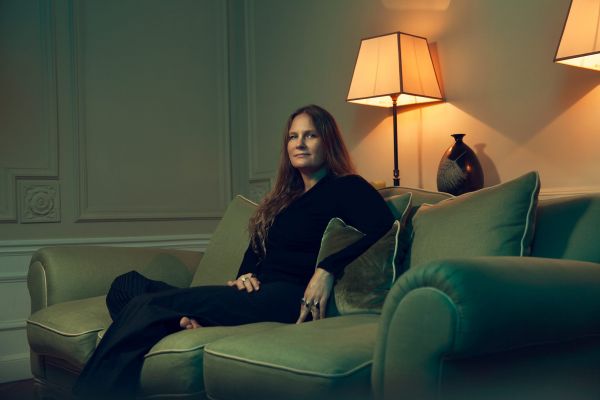
Speaking Body to Body: Q&A With Lidia Yuknavitch Posted on June 21, 2017 by BLOOM
Lidia Yuknavitch’s The Chronology of Water breathed new life into the memoir genre. It won a slew of awards and amassed a loyal following of readers who will forever champion her work. Prompted by a dare from author Chuck Palahniuk—I’m not a big fan of memoir, but if you wrote one, I’d read it—she wrote a story that had lived in her body for twenty years.
Yuknavitch’s memoir delivers fearless prose and lays bare the truths of survival and its many facets. The opening holds nothing back as we learn that her daughter was stillborn. The memoir ends on a note of real, messy ongoing-ness, along with its profound beauty. The reader is assured that Yuknavitch, once a competitive swimmer, is now learning to “live on land,” a small and tender thing.
Rhonda Hughes, publisher and editor of Hawthorne Books, said there are myriad reasons why Chronology went viral. “Number one being talent. Lidia’s one the most talented writers I know. How she played with form, language and theme in The Chronology of Water was compelling. She writes what we want to say and talk about but are often afraid to. Her words burrow under your skin, lodge in your heart.”
In addition, the book’s cover, featuring a naked woman’s body in water, with full frontal nipple submerged, kicked up a “boob book” controversy. Booksellers worried about displaying the nudity and that readers, if they did buy it, would not read it on subways, at parks or in coffee shops. Hughes handled the clash of censorship and commodification by standing strong with Yuknavitch’s vision. This is not your mother’s memoir was a truth, not merely a sales slogan. Hughes added a belly band, a charcoal gray “blanket” for buyers wanting to shroud the breast. The author also responded with aplomb in an interview at The Rumpus, and the book’s opening epigraph by Hélène Cixous clarifies the choice: Censor the body and you censor breath and speech at the same time. Write your self. Your body must be heard. Lidia Yuknavitch is pure corporeal-centric. She herself won’t be shrouded or placed in a box, especially one she fought her way out of.
BloomAt the age of 48, you wrote The Chronology of Water. Earlier works of yours were published but this book blew the doors open to a larger readership. Why do you think that was?
Lidia YuknavitchWell, it’s hard to ever know for certain, but I suspect that it had something to do with the way I wrote about my life experiences. I challenged the traditional memoir by breaking down narrative form. I think the fragmented, non-chronological form put something different into readers’ hands. I also experimented with the authority of voice—I broke that down into physical, emotional, intellectual, narrative, and lyric terms. I also suspect that something about telling the truth about one’s failures and mistakes and fuck-ups without then moving to celebratize the self—without saying I transcended anything or became a magical person—I think at least some readers identified with that. The idea that we endure and keeping going rather than transcend and become unicorns.
To read the entire interview, go to Bloom.
